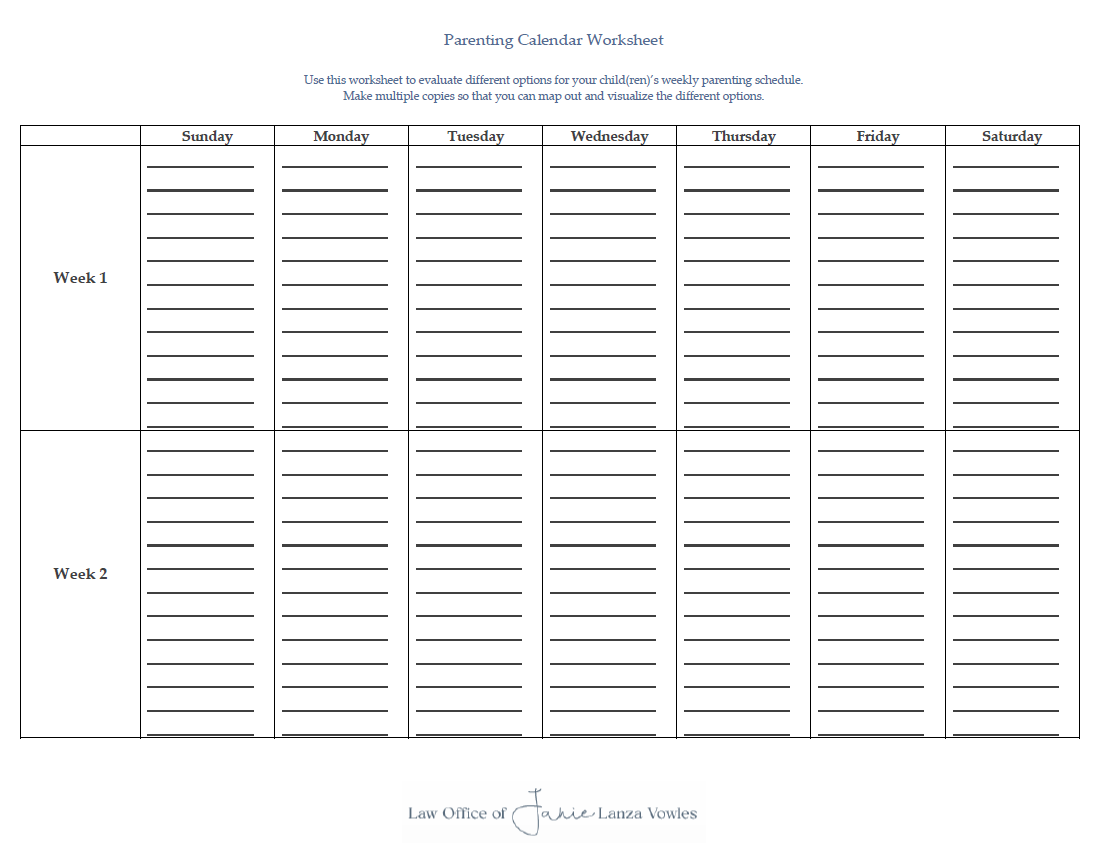You canNOT skip the BIG DOMINO when negotiating custody.

Helen and I were recently discussing her disagreement with her soon-to-be ex-husband, Henry, over the custody of their son, Jack.
*I talk about "Helen" and “Henry” a lot. They are not real people and they are not real clients. They’re more like composite characters. I will never reveal an actual conversation that I've had with an actual client. Ever.
Jack is five years old. He just started kindergarten. This is an exciting time for Jack because he loves school and he loves kindergarten.
For Helen and Henry, this is the beginning of about fifteen years of co-parenting from separate households. This prospect is not exciting for Helen right now. During our meeting, it’s clear she is ready to list all the reasons she and Henry will never agree on Jack's custody.
Helen's resistance is understandable, for sure. Co-parenting is a machine with MANY moving parts, even within an intact marriage. The coordination of a child’s events, appointments, and obligations can feel like a full-time job. Each of these moving parts presents another potential fight between Helen and Henry.
Right now, agreeing with Henry often enough to keep the machine running smoothly seems impossible to Helen.
But, I'm not going to ask Helen to agree on everything right now (or ever).
Instead, I will focus her attention on the very first thing she needs to do to move her case forward.
If you are struggling with custody issues in your case and feel as skeptical as Helen does, this is what I would tell you.
Don’t try to agree on everything. Just don’t. It really isn't necessary.
I tell Helen that we are going to start with one thing. I call it the big domino.

It is Jack's weekly parenting schedule.
Over the course of two "normal" weeks -- meaning, fourteen consecutive days that do not include a holiday or vacation week -- what days will Jack spend in Henry’s home, and what days will Jack spend in Helen’s home?
I tell Helen to map out on a calendar -- like this one -- what she thinks the schedule should be.

Helen doesn’t like this idea at all. She wants to talk about all the ways she has been a “good” mother and all the day-to-day caretaking tasks that Henry does not know how to do quite as well as she does. I understand her impulse to highlight her strengths, and she doesn't like what I have to say about that.
I tell Helen, “Let’s assume you’re right. We still need to propose a weekly parenting schedule. When will Jack be with you, and when will he be with Henry?”
Helen resists again. I can see it in her face. I’m asking her to shift away from thinking about all the ways Henry is not as “good” a parent as she is and to consider something she’d rather avoid – namely, how much time Jack will spend away from her each week.
But I insist that we focus on this first. It is essential.
The Judge in Helen's and Henry's case will not create a parenting schedule for Jack. Instead, the Judge will ask Helen what she proposes for a schedule, and then the Judge will ask the same of Henry, and then the Judge will take a look at the gap between the two proposals.
That's what will happen inside of the courthouse for Helen and Henry. That's what will happen in your custody case.
It won't matter how much better of a parent you think you are, or how many things your child's other parents is not as good at.
It won't matter how much you've spent on the lawyer standing next to you in court, or if you're standing there representing yourself.
You will still have to answer this question. What do you say the weekly parenting schedule should be?
So, we need to nail down Helen's proposal. That’s Step 1.
Instead of running through her list of good-mom criteria and grading Henry on each one, I slowly convince Helen to think about. . .
- the days of the week
- and Jack’s routine
- and her own availability
- and Henry's availability.
We talk about how Jack gets to and from school and his extracurricular activities. We consider the distance between her home and Henry’s home.
It is all rather. . . well. . . tedious. You might even call it boring.
And it is this tedious, boring work that will move Helen's case forward.
As she starts to shift her focus to different scenarios, including alternating weeks, mid-week visits, and weekends, she even mentions to me an activity that Henry and Jack have always enjoyed together and how a particular weekly schedule will help Henry remain involved in that activity with Jack. Now Helen's really cooking.
I emphasize that the goal is not to measure who is the better parent, but to create a schedule that serves Jack’s best interests. Helen starts to see the importance of this perspective. She acknowledges that Jack needs both parents in his life and that a consistent weekly parenting schedule is the foundation that will support Jack moving forward, even with his imperfect parents.
We review different templates of parenting schedules. Helen finds it helpful to visualize the potential arrangements on a calendar. She starts to feel more confident about proposing a schedule that balances Jack’s time with both parents.
I remind Helen that this is just the beginning of the process. The initial schedule is a starting point for negotiations. Flexibility and willingness to adjust based on Jack’s needs and circumstances are essential. Helen begins to understand that co-parenting requires cooperation and communication, even if it feels challenging right now.
Helen drafts a weekly schedule where Jack spends weekdays with her and weekends with Henry. We discuss the potential benefits and drawbacks of this arrangement. Helen worries about missing weekend activities with Jack, but she sees the value in giving Henry quality time too.
We also talk about the possibility of splitting weekends or having mid-week visits with Henry. Helen is open to these ideas, realizing that compromise is necessary. She notes the importance of Jack having a consistent routine and meaningful time with both parents.
As we finalize Helen’s proposal, I can practically see the shift happening in her brain.
She becomes more focused on what’s best for Jack rather than proving her superiority as a parent. Helen recognizes that co-parenting is a shared responsibility that requires both her and Henry to work together.
I reiterate to Helen that this is Step 1. The initial parenting schedule sets the foundation for resolving the custody case.
With a clear and reasonable proposed weekly parenting schedule, Helen's Judge will see her commitment to Jack's best interest, which means that Helen has also created for herself more leverage to negotiate with Henry.
So keep it simple, my friends. Start with mapping that weekly parenting schedule and witness the momentum that it gives you in your custody case.
Talk to you soon.

Janie Lanza Vowles -- www.jlvlaw.com


